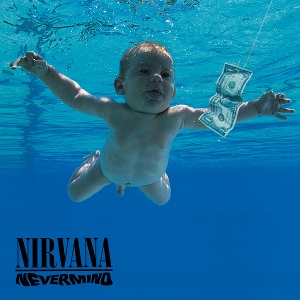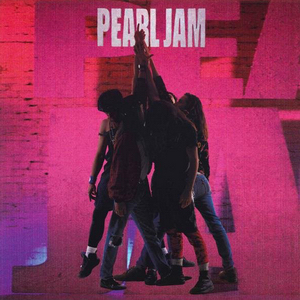Grunge
- Torfinn Sirnes
- Aug 22, 2020
- 3 min read
Grunge! The new and creative genre from Seattle that placed itself somewhere right between rock, punk and metal in music history. What's the history behind this alternative genre that turned the world of heavy music upside down and inside out in the early 1990's? And are some of those grunge bands really heavy metal?
The genre was called grunge - which means dirt or something disgusting. The bands didn't necessarily like the label but it stuck. And both the music and the image of the grunge bands was nothing but a revolution in the music business. Many of us remember it like it was yesterday... So what the hell happened?
The four biggest bands of grunge were Nirvana, Pearl Jam, Alice in Chains and Soundgarden. They had all been around before the big breakthrough of the genre but they also spearheaded the grunge movement in it's most succesful years. But those four bands sound very different! So why are they all placed under the grunge label?
One striking thing is that all of those bands came from the American city of Seattle, which shows how much regional scenes play a part in the rock and metal history. Grunge was even more attached to one city than the glam metal from Los Angeles and the thrash metal from San Fransisco. When it comes to the music the bands share a common gene with heavy metal through their use of heavy and often down-tuned distortion. However, the grunge bands stayed far away from the use of high-pithced falsetto vocals, big catchy choruses, keyboards, fast and flashy solos and songs about sex, drugs & rock 'n' roll. Only the drugs remained in the angst-filles and introspective lyrics. A clear distinction between metal and grunge also came with the image. Grunge bands embraced a stripped down and every day image often symbolized through the plaid flannel shirt.
It makes sense to divide the history of grunge into before and after Nirvana's breakthrough in late 1991. Before grunge hit it big time it was very much linked to the Sub Pop label in Seattle. They released out a lot of underground bands in the 80's that were important in shaping the grunge movement. Some of those bands got more attention at the tide of the decade but it was Nirvana's smash hit "Smells Like Teen Spirit" that changed the music scene almost overnight. Suddenly the glamorous looks and the cathcy party rock anthems were gone and especially the glam metal bands took a real beating in the 90's.
Are some of the classic grunge bands to be considered metal? Bands like Nirvana and Pearl Jam are not metal. Even though the two bands both fall under the grunge monicker they have somewhat different DNA's. Nirvana was very punk influenced while Pearl Jam came more from the hard rock bands from the 70's. Especially Led Zeppelin leaps to mind. Bascially the two bands are not heavy enough sounding to fall under the metal term. Soundgarden has a more obvious influence from the godfathers of heavy metal, Black Sabbath, and is located in the borderline between rock and metal. Out of those four classic grunge bands Alice in Chains is definetaly the most metal sounding.
For our tribute to grunge we chose the two heaviest sounding as inspiration, namely Soundgarden and Alice in Chains:
What happened to the grunge genre? Here it might also make sense to divide the history of grunge into the time before and after Nirvana frontman Kurt Cubain's tragic suicide. Not that his death killed grunge itself but in 1994 the high point was already over. The honest do it yourself and do it for yourself-attitude of the first grunge period had longe since evolved into big business and when things become big business some (or a lot) of the honesty dissapears.
Nirvana was dissolved. Alice in Chains and Soundgarden broke up. Only a less but still successful Pearl Jam kept going. Parts of the grunge sound somehow lived on in a more commercial form often labeled post grunge but the leading bands like Creed and Nickelback were often accused of not being the real deal.
On a sad note... In a scene overflown with both creativity, distress and drugs three of the geniuses are already gone:
R.I.P. Kurt Cobain
R.I.P. Layne Staley
R.I.P. Chris Cornell
Check out the short CD-length playlist below for a short historical introduction to the gene for smart dummies. It's not perfect but it gives you the gist of it... ;-)















Comments